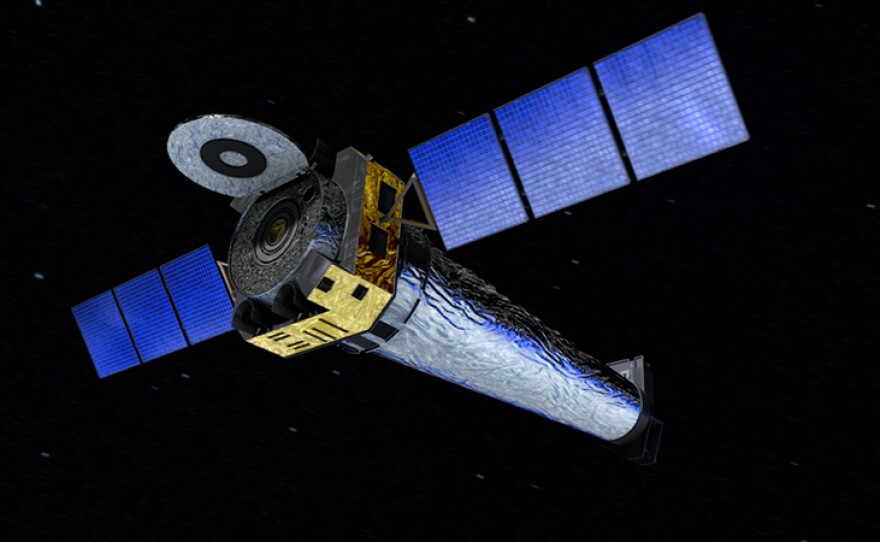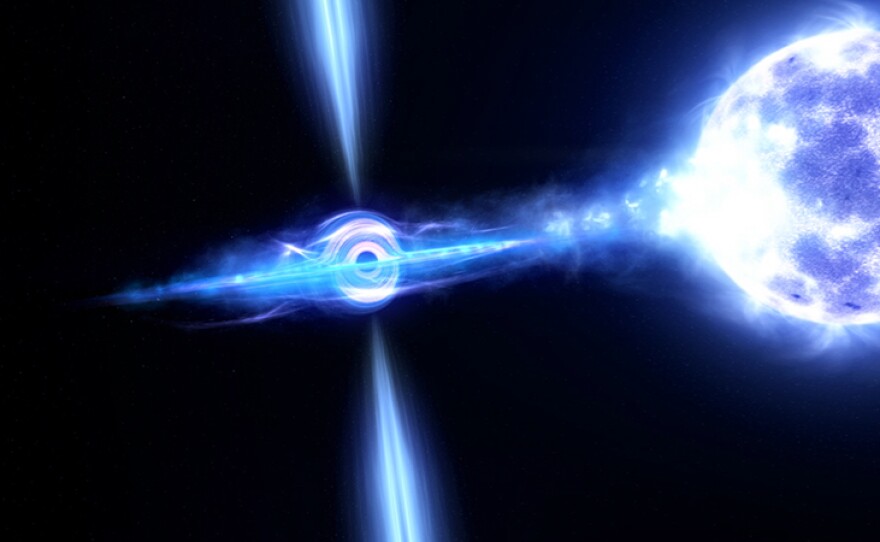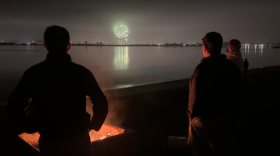Wednesday, Jan. 8 and 15, 2025 at 9 p.m. on KPBS TV / Stream now with the PBS app
—Discover how scientists are revealing new clues to the strangest and most extreme objects in the universe—
They are the most enigmatic, mysterious, and exotic objects in the universe: black holes. They’re also the most powerful; their gravity is so strong it can actually capture light. And they’re the most destructive, swallowing particles, dust, gas, planets, even giant stars. Anything that falls into them vanishes… gone forever. But now, astrophysicists are coming to realize that black holes just might be integral to the structure of the universe — and our very existence. In this 2-hour special, astrophysicist and novelist Janna Levin will take viewers on a journey to the frontiers of black hole science.
We will meet with the leading astronomers and physicists to discover the most cutting edge research that is helping to shed light on these shadowy monsters, and we will explore the provocative questions:
- Where do they come from?
- What’s inside them?
- What happens if you fall into one?
- And what can they tell us about the nature of space, time, and gravity?
Through dynamic CGI animation, Janna illustrates the principles of gravity, and even takes a trip to the edge of the black hole at the center of our galaxy. What will happen if she gets too close?
Also in the special, Janna shows how bigger and ever more more powerful instruments are leading to extraordinary breakthroughs in black hole research, such as the Laser Interferometer Gravitational-Wave Observatory (LIGO) Experiment.
On Sept. 14, 2015, after four decades of development, LIGO’s enormous twin interferometers finally detected the existence of elusive, long-sought gravity waves, produced by the collision of two black holes some 1.3 billion years ago.

This stunning result finally confirmed a prediction of Albert Einstein’s 1915 General Theory of Relativity, even though Einstein himself doubted whether such extreme phenomena as gravity waves, created by the warping of space and time, could actually exist.

“Black holes have been a subject of deep fascination for decades,” said NOVA senior executive producer, Paula S. Apsell. “This special is a thrilling look at what they can tell us about our understanding of space, time, and gravity—perhaps even the origins our galaxies.”
NOVA meets other prominent scientists in the field, contributing to the acceleration of black hole research, including UCLA’s Andrea Ghez, one of the key discoverers of a supermassive black hole at the center of our own Milky Way galaxy, and Yale’s Priya Natarajan, a leading expert on the mystery of black holes and early cosmic evolution.
A long trail of evidence, including observations by NASA’s Chandra X-ray telescope and the Hubble Space Telescope, has pointed to the probable existence of supermassives — giant black holes millions or even billions of times as massive as the sun — in nearly every galaxy.

NOVA follows Ghez and Natarajan as they explore questions about the role of supermassives in the early universe, and search for answers about how they got so big — answers that could provide an understanding of how all galaxies emerged, including our own Milky Way, from their origin in the Big Bang.
A visually spectacular and accessible guide to many mysteries of black holes, the special offers a provocative look at how their extreme properties make them a crucial “lab” for testing our most important theories about how our universe works and the story of how it evolved.

Watch On Your Schedule: This full episode is available to stream now with the PBS app.
Episodes are available for to stream for a limited time after each broadcast. Extend your viewing window with KPBS Passport, a benefit for members ($60 yearly) using your computer, smartphone, tablet, Roku, AppleTV, Amazon Fire or Chromecast. Learn how to activate your benefit now.
Join The Conversation: NOVA is on Facebook, @novapbs on X #NOVAnext
Credits: A NOVA production for WGBH Boston. Written, produced and directed by Rushmore DeNooyer. Executive Producer is Julia Cort. Senior Producer for NOVA is Chris Schmidt. Senior Executive Producer for NOVA is Paula S. Apsell.





